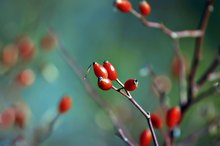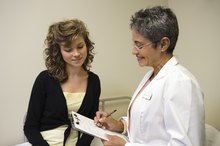How to Treat an Abscess With Home Remedies
How to Treat an Abscess With Home Remedies. An abscess is a pus-filled recess in the skin. They can occur anywhere on the body, but they most often present on the face. If you have an abscess, there are some very effective basic steps you can take to treat it with home remedies.
If you are experiencing serious medical symptoms, seek emergency treatment immediately.
Use heat, the number one home remedy to treat abscesses, to bring the abscess to a head. Place a clean, warm face cloth over the boil for 20 minutes at least three times a day. Rotate face cloths to maintain consistent heat. Warm compresses will bring the abscess to a head.
How to Treat Acne Cysts
Learn More
Lance the abscess once it has formed a head. While not the most appealing home remedy, lancing an abscess, or boil, is simple. Simply sterilize the head of a pin or needle with alcohol or a flame, poke a hole in the head of the abscess, and allow the pus to drain. You may need to apply pressure to get the pus to drain.
Apply antibiotic ointment once the pus has drained, and bandage the abscess. Bacitracin ointment is commonly used as a home remedy and works well to treat lanced abscesses.
How to Lance a Wound
Learn More
Continue using warm compresses a couple of times a day for at least three days to ensure all the pus drains from the abscess. Apply a clean bandage each time you finish using a compress.
Warnings
There are some abscesses for which a home remedy is not wise. Abscesses located in the lip, nose, armpit, groin or those in the breast of a breastfeeding woman should be treated by a physician. Also, regardless of location, an abscess that has red lines radiating out from it should be treated by a physician. Never squeeze an abscess that is located near your lips or nose. The infection could spread to your brain. Improperly treated abscesses can lead to blood poisoning, which can be fatal in extreme cases. If you have any concerns that your abscess is not healing properly, contact your doctor immediately.
Related Articles
References
- Kolar SL, Liu GY. Targeting bacterial abscess formation. EBioMedicine. 2016;12:16-17. doi:10.1016/j.ebiom.2016.10.017
- InformedHealth.org [Internet]. Cologne, Germany: Institute for Quality and Efficiency in Health Care (IQWiG); 2006-. Boils and carbuncles: Overview. 2018 Jun 14.
- Creech CB, Al-zubeidi DN, Fritz SA. Prevention of recurrent staphylococcal skin infections. Infect Dis Clin North Am. 2015;29(3):429-64. doi:10.1016/j.idc.2015.05.007
- Patterson, JW. Practical Skin Pathology: A Diagnostic Approach. Amsterdam: Elsevier Health Sciences; 2013.
- Toomey A, Le JK. Abscess, breast. [Updated 2019 Jan 11]. In: StatPearls [Internet]. Treasure Island (FL): StatPearls Publishing; 2019 Jan-.
- National Health Service. Treatment abscess. Update November 4, 2019.
- Baiu I, Melendez E. Skin abscess. JAMA. 2018;319(13):1405. doi:10.1001/jama.2018.1355
- Murren Boezem, J. KidsHealth from Nemours. Abscess. Update September 2017.
- Wolf, K; Johnson, R.; and Suurman, R.. "Section 22. Bacterial infections involving the skin." Fitzpatrick's Color Atlas & Synopsis of Clinical Dermatology (5th ed.). 2005; McGraw-Hill Professional; ISBN-13 978-0071440196.
Warnings
- There are some abscesses for which a home remedy is not wise. Abscesses located in the lip, nose, armpit, groin or those in the breast of a breastfeeding woman should be treated by a physician. Also, regardless of location, an abscess that has red lines radiating out from it should be treated by a physician.
- Never squeeze an abscess that is located near your lips or nose. The infection could spread to your brain.
- Improperly treated abscesses can lead to blood poisoning, which can be fatal in extreme cases. If you have any concerns that your abscess is not healing properly, contact your doctor immediately.
Writer Bio
This article was written by the CareerTrend team, copy edited and fact checked through a multi-point auditing system, in efforts to ensure our readers only receive the best information. To submit your questions or ideas, or to simply learn more about CareerTrend, contact us [here](http://careertrend.com/about-us).








